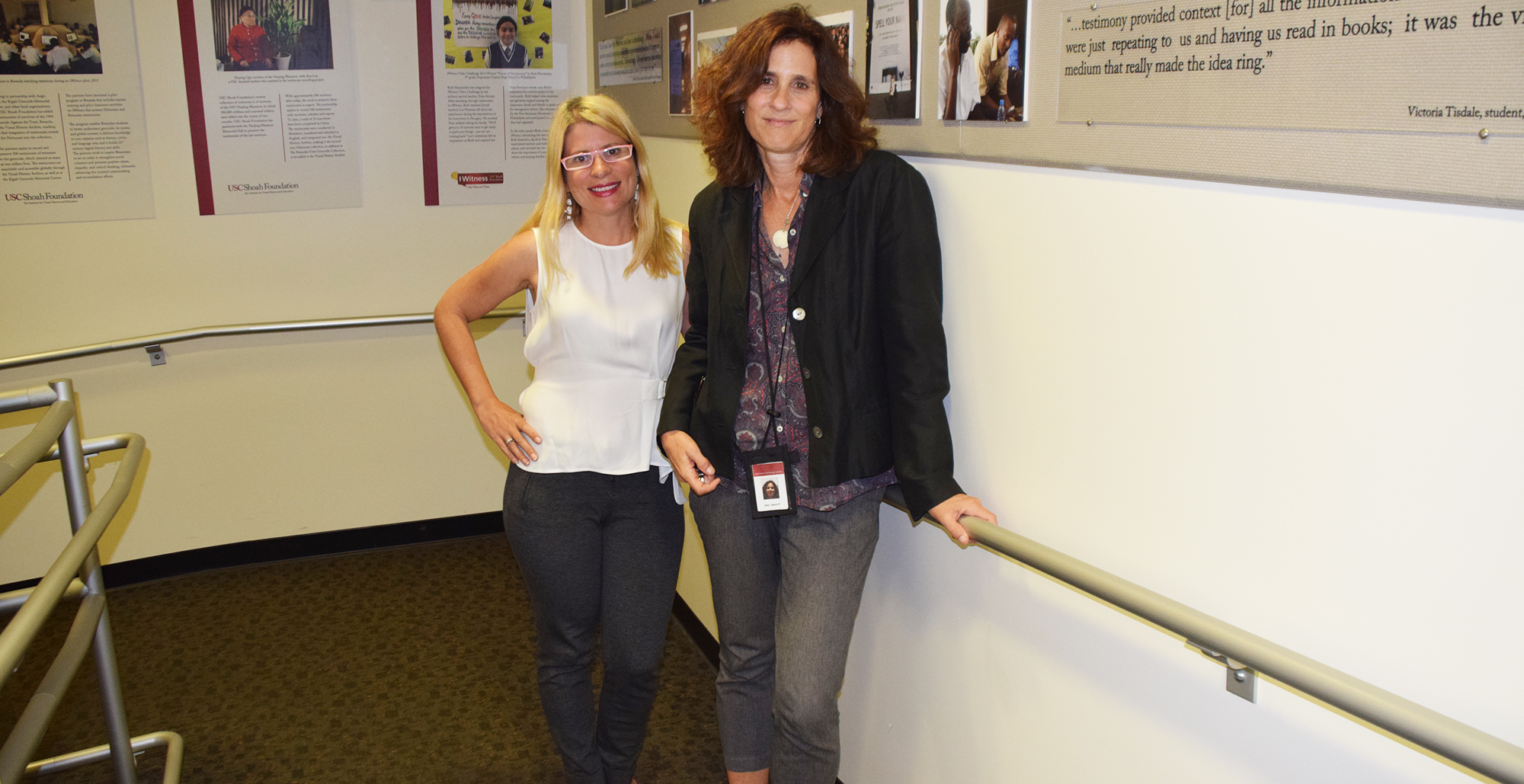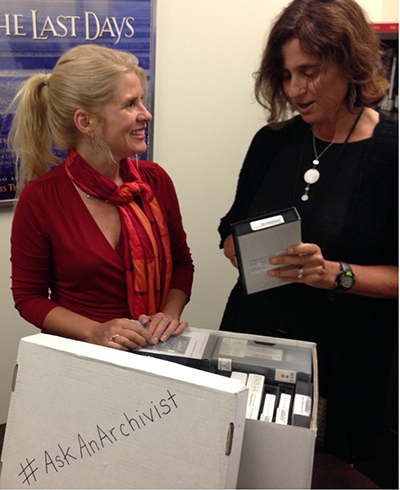USC Shoah Foundation Participates in #AskAnArchivist Day for Second Year


Have you ever wanted to know what it takes to become an archivist? Or what the archivists at the USC Shoah Foundation are working on today? How has the Visual History Archive changed over the last year?
Now is your chance to get those questions answered. The Society of American Archivists is promoting #AskAnArchivist Day Thurs., Oct. 1 on Twitter. It is an opportunity for archivists across the country to interact with anyone interested in their profession by answering questions with the hashtag #AskAnArchivist.
To join in the discussion, tweet @USCShoahFdn and use the hashtag #AskAnArchivist to ask its archivists Sandra Aguilar and Daryn Eller a question. This year participants will be able to interact with the archivists and the Visual History Archive. At 10 am PST tune into the broadcast app Periscope for a live tour of the Institute’s technology department and a demonstration of the Visual History Archive.
 Sandra Aguilar, left, and Daryn Eller
Sandra Aguilar, left, and Daryn EllerEller works with the USC Shoah Foundation Institutional Audio-Visual Collection, a database of the Institute’s personal recordings of everything from early staff meetings and interviewer trainings to press conferences. She organizes and describes these items so that they can be easily accessed by staff as well as researchers interested in the history of the Institute.
Aguilar and Eller are ready to talk about why they became archivists, what makes the Visual History Archive unique, their day-to-day tasks, advice for upcoming archivists, and more.
Like this article? Get our e-newsletter.
Be the first to learn about new articles and personal stories like the one you've just read.